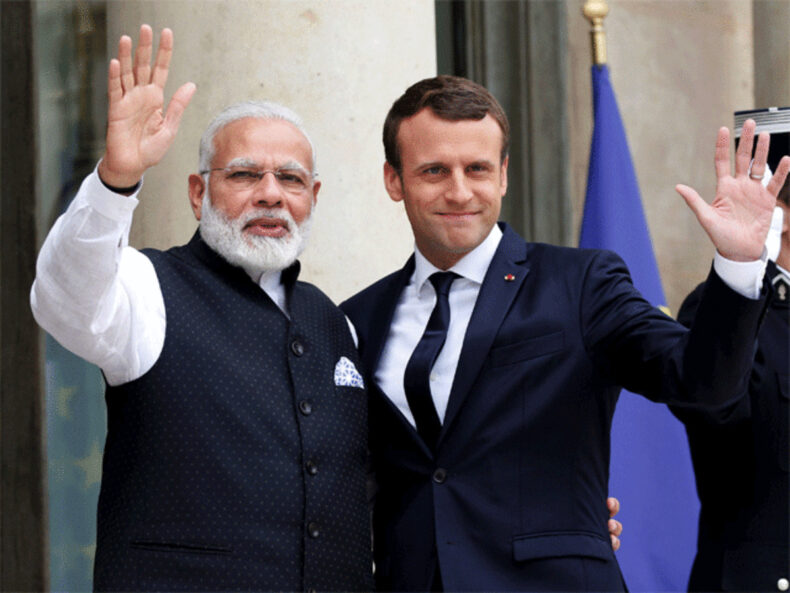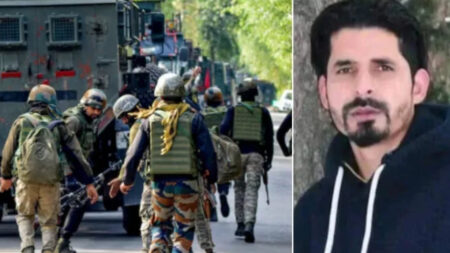India’s Prime Minister Narendra Modi this morning, left for a two-nation tour to France and the United Arab Emirates.
On the invitation of French President Emmanuel Macron, the Prime Minister will reach Paris this afternoon for the first stop of his tour.
He will be the special guest at tomorrow’s Bastille Day Parade, in which many Indian armed troops from all three services will participate.
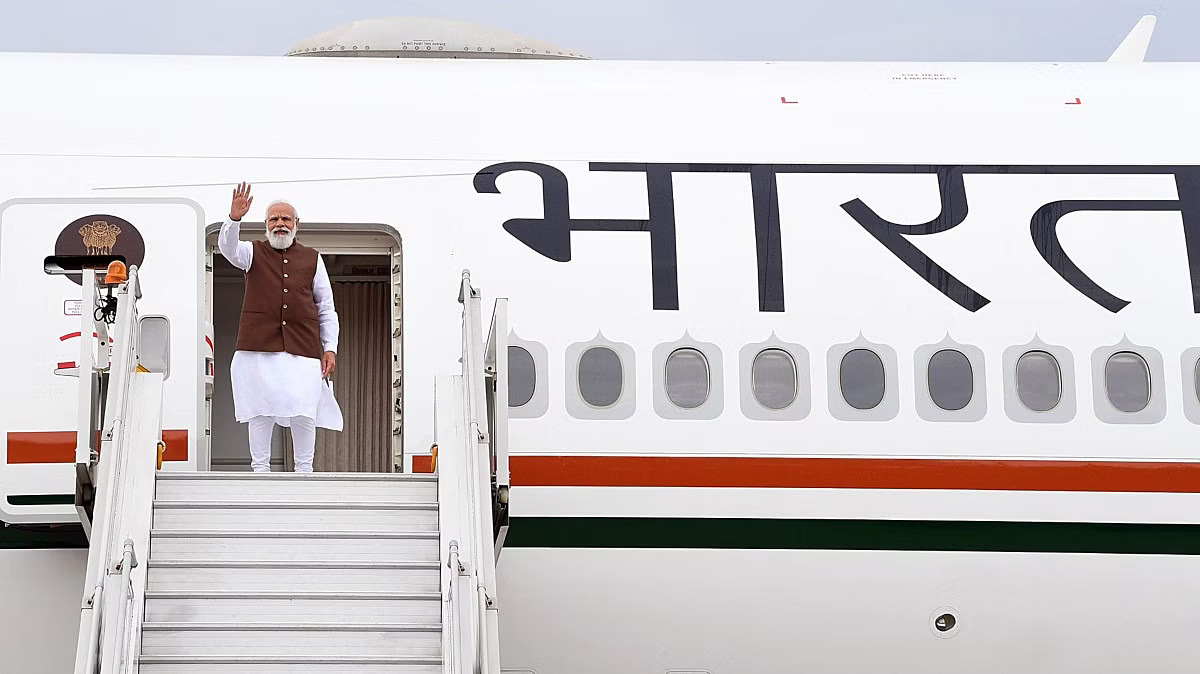
According to PM Modi’s departure announcement, he is visiting France at the request of his friend and French President Emmanuel Macron.
The Prime Minister noted that this visit is particularly noteworthy since he will attend Bastille Day festivities in Paris with President Macron as the Guest of Honour.
Additionally, Modi emphasised that our strategic cooperation is celebrating its 25th anniversary this year.
According to PM Modi, our two nations’ strong cooperation in various fields, including military, space, civil nuclear, the blue economy, commerce, investment, education, culture, and people-to-people connections.
He said that both countries collaborate on regional and international concerns.
The Prime Minister expressed his eagerness to meet President Macron and engage in extensive conversations about moving this venerable and tried-and-true alliance forward over the coming 25 years.
The Prime Minister stressed that India serves as a “bridge” between the “Global South” and the Western world. Modi asserted that Global South rights have long been disregarded.
As a result, these nations are experiencing “anguish,” he said.
On July 15, the Prime Minister will go to Abu Dhabi for the second part of his trip. He will speak with Sheikh Mohamed bin Zayed Al Nahyan, president of the UAE and ruler of Abu Dhabi.
The visit of the Prime Minister will provide a chance to discuss ways to advance the India-UAE Comprehensive Strategic Partnership in several areas, including energy, education, health care, food security, fintech, defence, and culture.
As the UAE is a Special Invitee to India’s G-20 Presidency and is hosting COP-28 of the UNFCCC, there will also be a chance to discuss collaboration on international concerns.
Bastille Day Parade will feature IAF Rafales
According to the press release, three Rafale fighter planes from the Indian Air Force will participate in the military flypast during Bastille Day over Paris’ Champs Elysees.
Prime Minister Narendra Modi, the guest of honour, will witness this spectacular display.
The Bastille Day marching contingent would also include Indian military personnel.
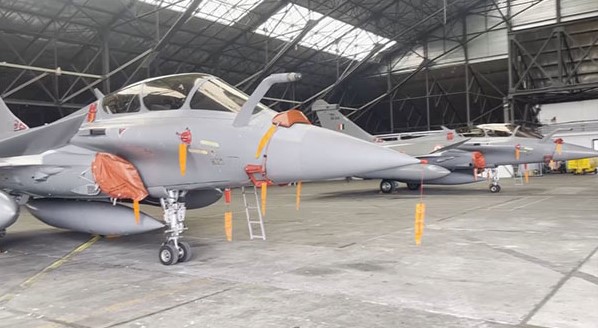
With its long-range air-to-air and air-to-ground missiles, cutting-edge radar, and electronic warfare capabilities, the Rafale is an aircraft from the 4.5 generation that has enabled India to reclaim its dominance over the skies of Indian sub-constituents.
They are the newest aircraft to join the Indian Air Force and are regarded as the most powerful in the whole Asian continent.
The operational readiness of the nation along both the borders with Pakistan and China has significantly improved as a result of the 36 Rafales’ full induction.
The maintenance of the aircraft, which have a serviceability rate of more than 75%, is also handled by the French business Dassault Aviation.
To carry out precise assaults at closer ranges, the IAF additionally added the HAMMER missile to the Rafale’s armament.
PM Modi Pushes Permanent UN Security Council Membership
Prime Minister Narendra Modi fervently argued in favour of India’s permanent membership in the UN Security Council throughout his speech.
He emphasised that without, the world’s most populous country and a thriving democracy, as a permanent member, the UN’s main body cannot claim to represent the whole globe.
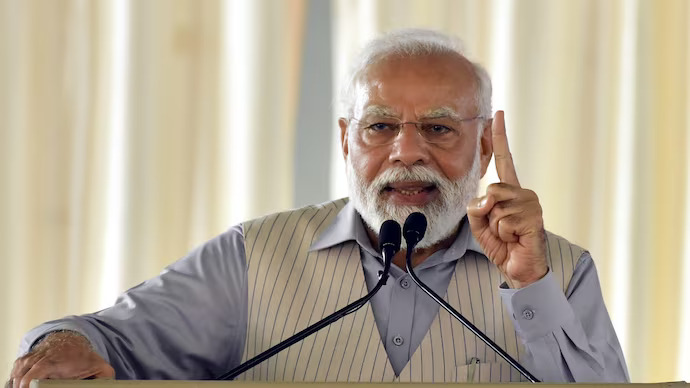
Modi emphasised India’s enormous contributions to the UN and its dedication to world peace and prosperity.
He emphasised the need for a Security Council that is more inclusive and representative of the geopolitical realities of the twenty-first century.
He noted that French President Emmanuel Macron, a key ally in the Asia-Pacific area, agreed with his assessment of the world order.
Additionally, due to its lopsided membership and opaque decision-making procedures, it is even less able to meet the issues of the present.
I believe that the majority of nations agree on the improvements they want to see in the UN Security Council, including the part India should play.
By 2047, when we will celebrate 100 years of our freedom, we will have a clear vision.
In 2047, India should achieve industrialization, in our opinion. an advanced economy that meets the requirements of all its citizens in terms of opportunity, infrastructure, health care, and education, he added.







